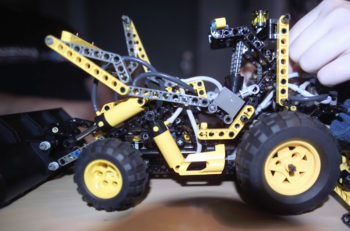How Can Parents Support STEAM?
How Can Parents Support STEAM?
 STEAM is the blending of science, technology, engineering, art and mathematics into learning experiences through problem solving and discovery. Schools are introducing this approach to learning by creating STEAM labs on elementary and secondary campuses and holding STEAM events for families. An important purpose of the Common Core standards and the Next Generation Science Standards is to prepare children for the 21st century work force. The standards focus on making learning relevant to life. STEAM activities provide relevant opportunities to problem solve because they reflect the kind of thinking that happens every day in the work world.
STEAM is the blending of science, technology, engineering, art and mathematics into learning experiences through problem solving and discovery. Schools are introducing this approach to learning by creating STEAM labs on elementary and secondary campuses and holding STEAM events for families. An important purpose of the Common Core standards and the Next Generation Science Standards is to prepare children for the 21st century work force. The standards focus on making learning relevant to life. STEAM activities provide relevant opportunities to problem solve because they reflect the kind of thinking that happens every day in the work world.
How can parents support STEAM at home?
Let us pretend we are renovating our child’s bedroom. How will the content areas of science, technology, engineering, art and mathematics integrate in this problem-solving experience? In this bedroom renovation, science will guide the choices we make about the types of materials we want to use in our child’s bedroom such as the type of paint, wood or metal. We will likely use technology and mathematics to measure, order and perhaps purchase the materials for the project. Engineering skills will come into play with any construction that will be part of the project. Through art and creativity, we will focus on designing a pleasing and beautiful space. Therefore, renovating our child’s bedroom could be a STEAM activity!
Many types of STEAM activities can be done at home with children of all ages. Two books which I have found to be useful sources of ideas for STEAM activities are Tinkerlab: A Hands-On Guide for Little Inventors, by Rachelle Doorley and The Art of Tinkering by Karen Wilkinson and Mike Petrich. The first book is written with younger children in mind, while the latter describes activities to engage older kids.
STEAM activities invite our children to play with ideas and to create unique solutions. They also require critical thinking and perseverance. These are all components of learning that will serve them as they develop in the 21st century. Play and learn with your kids.
With love and affection,
Rosemarie
Copyright (c) 2017 by GenParenting